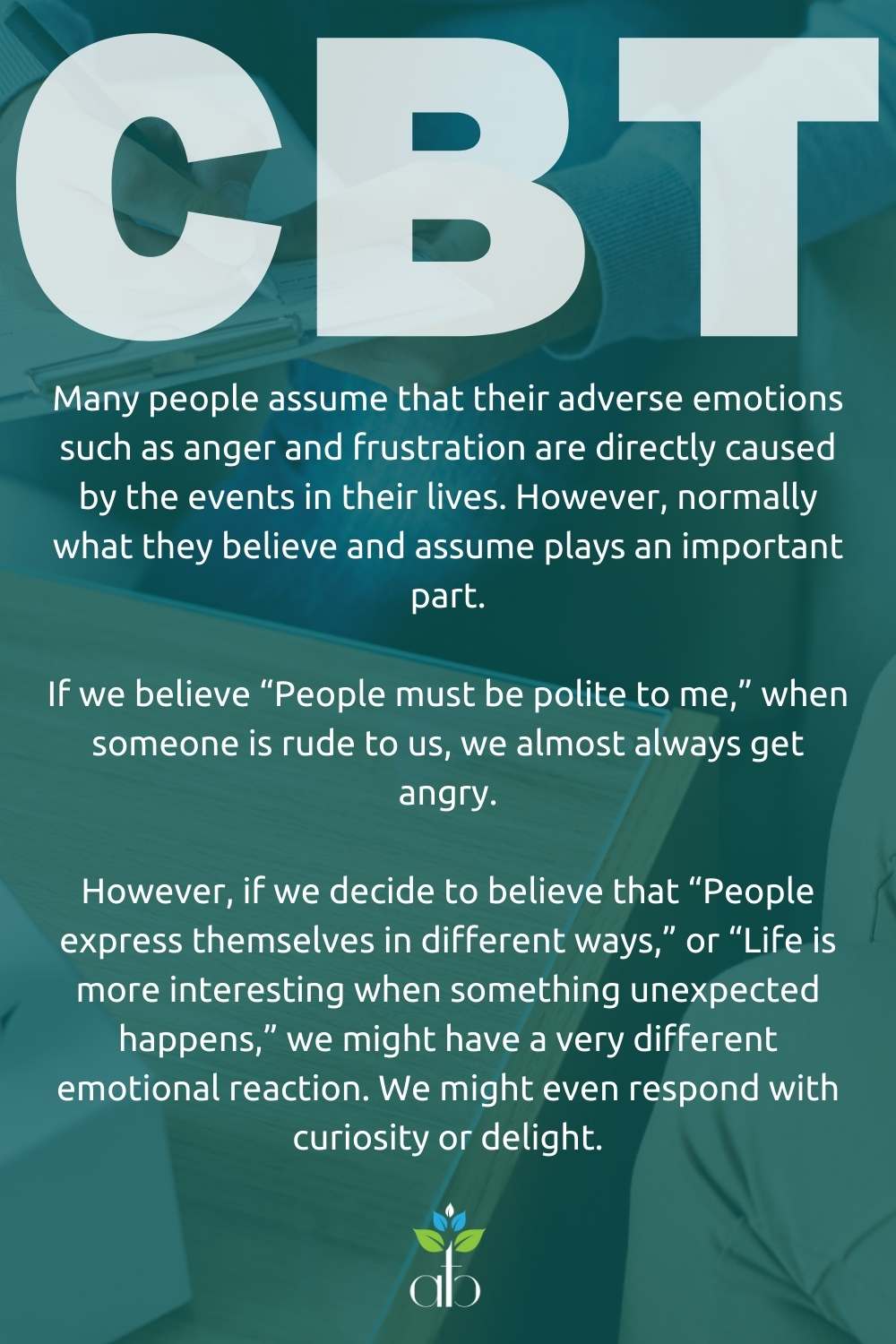Episode 231
Your Interpretation

In one popular understanding of events and our emotional reactions, something bad will happen and as a direct result, we react. For example, someone cuts us off in traffic, calls us a bad name, and we can’t help but feel angry or upset, and our day is ruined.
In cognitive behavioral therapy, we learn there’s an extra step in this process. Our beliefs, assumptions and interpretations about the event lead us to the emotional reaction and our subsequent actions. We probably have some belief with the words “should” or “must”, for example “People must be polite to me.”
In a sense, this type of belief is making a demand on reality, and often reality is very resistant to our demands.
We might ask ourselves, what information are we lacking? Perhaps the man in traffic is under a lot of pressure at work; perhaps he has recently lost his wife; perhaps he’s just not a nice person. If any of these are the case, it’s quite clear that the event is quite impersonal.
Then we can think of a new way to see the event. For example, “People express themselves in different ways.” “We can view the way people express themselves as information. This man is feeling frustrated.” “Life is more interesting when something unexpected happens.” “An angry person might have something to teach us about ourselves.”
Hosts & Guests
Kurt Robinson
Transcript
Let’s talk your interpretations, your beliefs, your thought patterns.
I did this workshop with a couple of groups of people talking about cognitive behavioral techniques, the principle and how to apply these.
This is very important but one principle is that we don’t always have a lot of control over our lives but we do have a lot of control over our attitude, how we think about things.
If we plan ahead we can think about situations in advance and develop belief symptoms known to help us see things in a positive light. It’s pretty amazing the power of the stuff when you get into it.
So I did this example of a man he’s in traffic and someone cuts him off and yells at him and calls him an idiot.
Whats normal in this situation? We might even say its reasonable for this man to get angry and yell back, tailgate him and perhaps have his day ruined for this event that was just a few minutes. Thats just a normal way of looking at this. It’s just the fact that someone was rude to him and he has this reaction as a direct consequence.
That’s the standard or popular way of looking at the situation. One thing happens and he has these emotions as a result. Of course in CBT there’s an extra step. Some people call it the ABC formula.
The activating event which in this example is the other driver cutting him off and calling him a mean name.
C is the consequence, especially the emotional one. And there’s consequence in his actions. He feels angry and lets that bother him for the rest of his day.
The b step, the second step are the beliefs, thought patterns and assumptions.
What kinds of beliefs must a person have to let that bother them?
We might imagine some monk who doesn’t allow anything to bother them, there are people like this I know. I’ve met some of them.
They might be in the situation perhaps we could notice we had that expectation that someone wouldn’t be rude to us and drop it in that situation. That’s one way of handling the situation.
As I said we could also talk about it in advance so we can say to ourselves if we do have this situation, if we come aware we have expectations when we get frustrated or angry is because we had expectations that reality did not comply with our expectations. More often than not reality does not align with our expectations.
That’s a realistic view to have. So in this case the man had that expectation, no one can be rude to me. People must not, should not cut me off in traffic.
They can be phrased in this way with should or must so its almost like they’re making demands of reality and reality is pretty resistant to when you make demands of it. How can we let go of that?
Instead if he doesn’t have some expectation well maybe he has this belief and says sometimes people will cut me off or be rude. Or we as these reality testing questions like “what might I not know about this situation?”
He might be rushing to the hospital or have just found out some grave news from his wife. Who knows?
Lots of things going on in that persons head and he might get stressed at work and might not be a very nice person, that doesn’t reflect on us at all.
So we can include this, when we include this extra potential for uncertainty in our worldview we find we don’t get frustrated as much and we don’t get angry as often because we know things are a bit outside of our control and maybe quite impersonal just like Toltek said in the 4 Agreements Don’t take anything personally.
We might even come to a more positive belief about the situation like I said in a previous episode about phrasing it positively.
Well people might express themselves in different ways. It sounds simple but people do express themselves in different ways and people have various ways of communicating things. Again it doesn’t necessarily reflect on us.
When they communicate what they are feeling in a way that’s not entirely respectful, that has very little to do with us we can just acknowlege that.
Ok that guys frustrated, I can see that.
Life would be pretty boring if we were all the same and didn’t have challenging in some sense they help life keep things interesting. Not that we should go out of our way to find someone frustrated or things like that because of course life will present people and situations that test our patience, we don’t need to seek them out but they do keep life interesting.
As one of the head monks in What Thram K that teachers come in many forms.
When we do have one of those situations we can be like “what can I learn about this? How could I have behaved differently or had different expectations?”
When people have these beliefs systems its not anything to do with me necessarily that we can’t learn something, we will find its easier to remain calm so we don’t need to get frustrated.
Those are a few ideas for how we can look at those situations in a different way a little rundown of the CBT model of activating events, beliefs and consequences.
Thanks for listening and remember you do have that power. It’s your interpretation that decides the meaning of an interaction.

New Episodes Every Weekday
11am Mexico City time
10 min episodes Monday - Thursday
1 h interview episode on Fridays
As an Amazon Associate I earn from qualifying purchases.
Stay Beautiful &
Stay Connected
